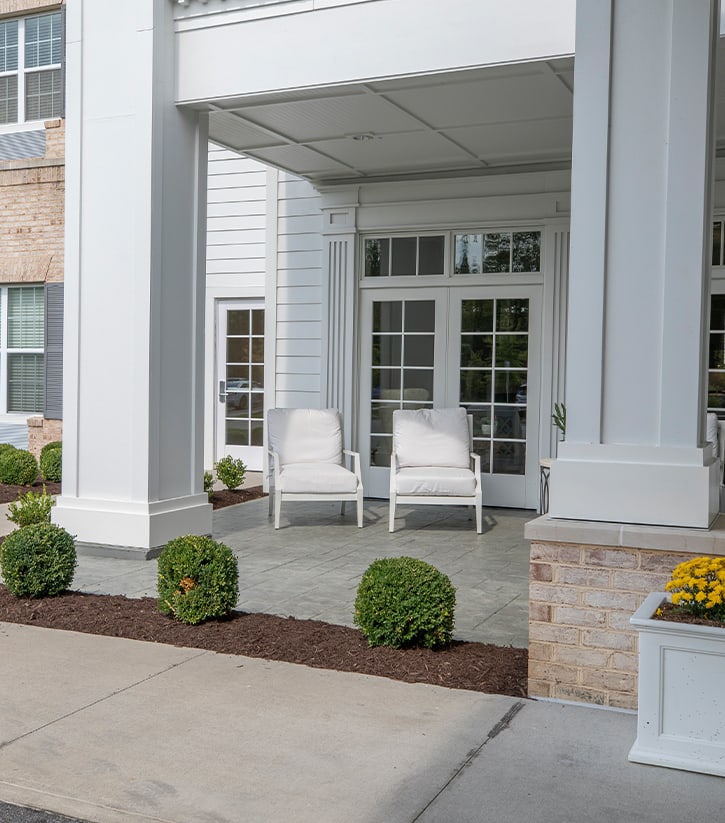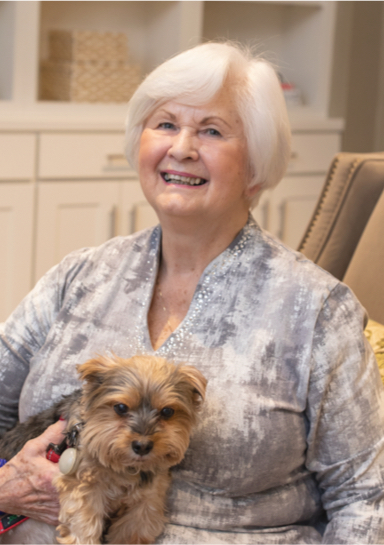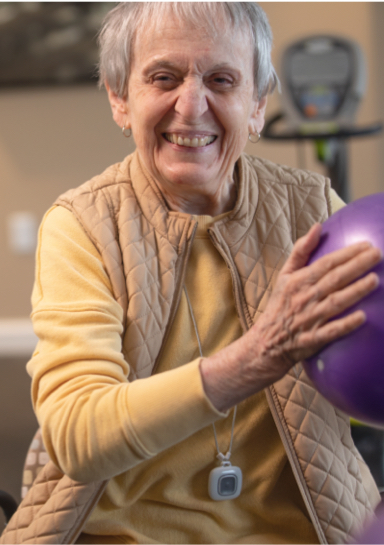Key Takeaways
- Assisted living provides support with daily routines like meals, medication, and personal care while maintaining independence.
- Safety and accessibility features reduce risks at home and offer peace of mind for families.
- Nutritious dining, wellness programs, and social opportunities promote physical and emotional health.
Aging can bring new challenges, from managing medications to staying socially connected. For many older adults, these changes can make living alone stressful and even unsafe. Assisted living provides the right balance of support and independence, improving overall quality of life through safety, wellness, and opportunities for meaningful connection.
With comfortable housing, around-the-clock support, elevated amenities, and programs designed for health and engagement, assisted living communities create an environment where seniors can thrive.
What Is Assisted Living?
Assisted living is a long-term care option designed for older adults who need help with daily activities but don’t require the full medical care of a nursing home. It combines personalized support, accessible housing, and opportunities for socialization in a homelike setting.
Residents typically receive:
- Help with personal care tasks like bathing, grooming, or dressing
- Medication reminders and health monitoring
- Nutritious meals and snacks
- Social and recreational opportunities
At its core, assisted living allows seniors to maintain independence while still having access to the care and services they need.
When Should Families Consider Assisted Living?
Making the decision to transition to assisted living can feel overwhelming, but there are clear signs that it may be time:
- Struggling with daily tasks like cooking, cleaning, or home maintenance
- Increased risk of falls or safety concerns at home
- Forgetting medications or missing important appointments
- Feelings of loneliness or isolation
- Needing more consistent access to health support
Talking with healthcare providers and family members can help provide clarity, ensuring the move is made at the right time and with confidence.

What Are the Benefits of Assisted Living?
Personalized Care for Individual Needs
Every senior’s needs are unique. Assisted living communities create personalized care plans that cover everything from medication schedules to nutrition. These plans are flexible and can be adjusted over time, ensuring residents continue to receive the right level of support.
Around-the-Clock Support
Safety is one of the most valued aspects of assisted living. With staff available 24/7, residents and families can rest assured that assistance is always close by—whether for routine help or in an emergency.
Comfortable and Accessible Living Spaces
Many private homes present challenges such as stairs, uneven floors, or narrow hallways. Assisted living apartments, by contrast, are designed for accessibility and comfort, often featuring step-free layouts, wide doorways, and built-in safety features like grab bars.
Nutritious Dining Every Day
Good nutrition supports overall health, but planning and cooking meals can be tiring. Assisted living communities provide chef-prepared meals designed with seniors’ dietary needs in mind. Dining also becomes a social occasion, where residents can share meals together in a welcoming environment.
Convenience Where It Matters
Housekeeping, laundry, and home maintenance are no longer burdens to manage. Many communities also include on-site services like salons or wellness centers, giving residents time and freedom to focus on what they enjoy.
Social Opportunities That Build Connection
Loneliness and social isolation affect nearly a quarter of older adults and are significant risk factors for mental health conditions like depression and anxiety. Assisted living provides a full calendar of social opportunities, from fitness classes and book clubs to art workshops and group outings. These occasions help seniors build new friendships and stay engaged.
Health and Wellness Programs
Many assisted living communities provide access to wellness services, such as visits from nurses, fitness instruction, or therapy programs. Specialized care, like memory support for those living with dementia, may also be available to ensure residents remain safe and supported.
Choosing the Right Community
When exploring assisted living options, it’s important to look for:
- Safe and comfortable living spaces
- Care plans tailored to individual needs
- A variety of dining and wellness programs
- Opportunities for social connection and engagement
- A supportive, welcoming atmosphere
The right community is one that respects each resident’s independence while providing compassionate care where it’s needed most.
Connection and Joy Await at Woodland Hills
At Woodland Hills, part of Retirement Unlimited Incorporated (RUI), assisted living is designed to feel like home. Here in Roanoke, VA, residents experience comfort, dignity, and connection every day. From thoughtful support with daily routines to enriching wellness and social programs, the community helps older adults live the lifestyle they have earned and deserve.
Whether enjoying a delicious meal with neighbors, joining a group activity, or receiving personalized assistance, residents at The Woodland Hills can feel confident knowing they are supported in every aspect of life.
Schedule a visit today to see how assisted living at The Woodland Hills can bring safety, connection, and peace of mind for your loved one.














